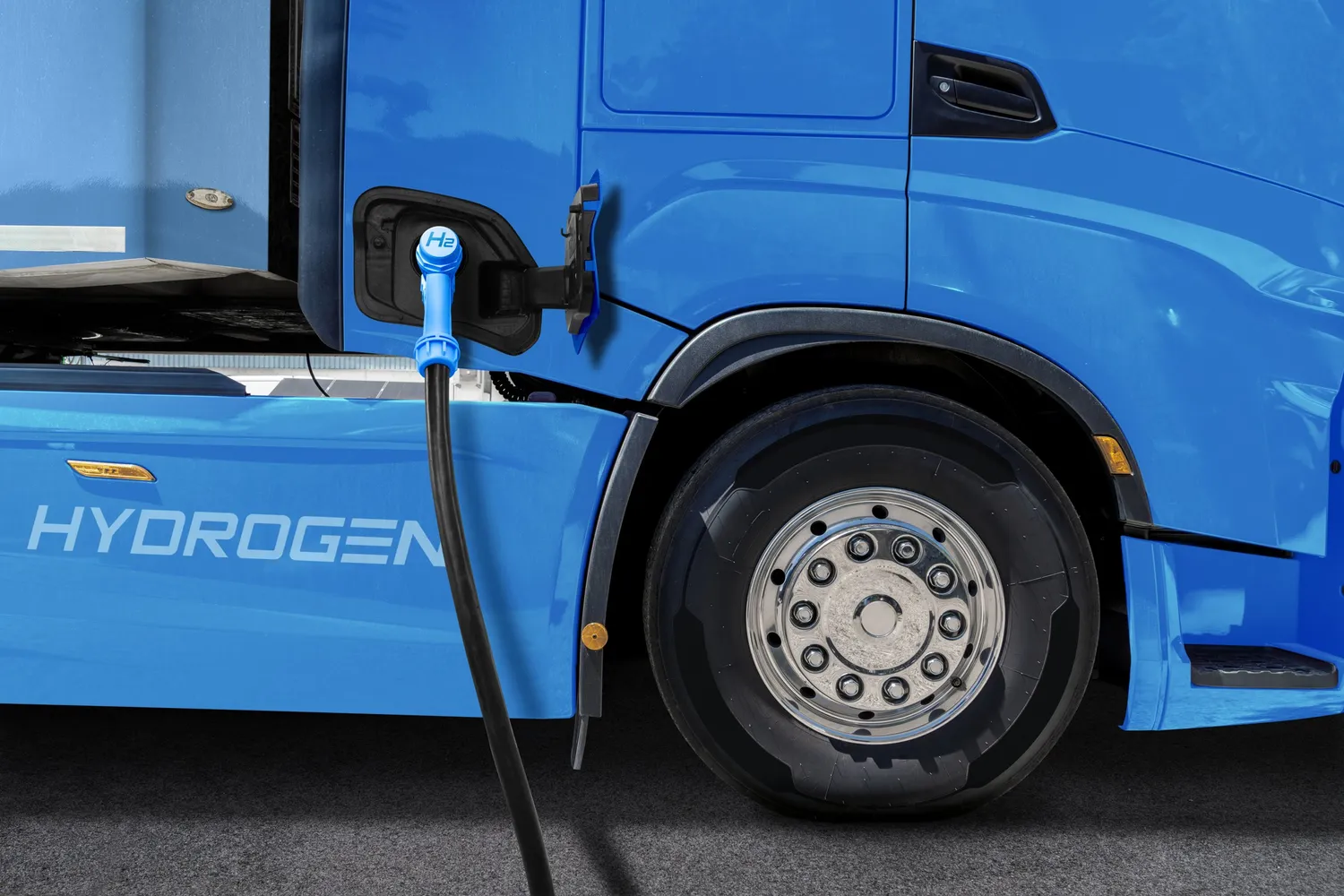“We Must Immediately Slash Hydrogen Pump Prices to €8/kg to Make H2 Mobility Competitive — Here’s How”
BMW, Toyota, and Hyundai back call for EU policymakers to adopt five “urgent actions” to accelerate H2 road transport — including allowing subsidised trucks to use grey hydrogen
A hydrogen truck being refuelled.
Photo: Shutterstock
By Chongyang Zhang
Published 30 September 2025, 20:57
A major hydrogen lobbying group, including auto giants BMW, Toyota, and Hyundai, has called on the EU to take five “urgent actions” to nearly halve the price of hydrogen at the pump for road users to €8/kg ($9/kg).
Among the proposals is an EU-supported ramp-up of H2 mobility that temporarily allows the use of polluting grey hydrogen.
In its Heavy-Duty Market Activation strategy released today, the Global Hydrogen Mobility Alliance (GHMA), consisting of 37 companies, urges policies that would deliver an “immediate reduction” in hydrogen prices from over €15/kg today, aiming to boost adoption of hydrogen in European road transport, particularly for heavy-duty trucks.
Cost Remains a Key Barrier
“The current strategy for road mobility — especially for heavy-duty trucks — has not succeeded in activating the market or overcoming initial cost barriers,” GHMA warned.
“A successful European strategy must tackle this cost challenge upfront, offering fleet operators a comparable total cost of ownership to diesel or battery alternatives from the start. This is particularly critical for heavy-duty trucks, the first and most vital segment for scaling hydrogen adoption,” the statement said.
Prioritising Heavy-Duty Hydrogen Trucks
GHMA emphasized that prioritising heavy-duty trucks is critical and called on the EU to focus support on key industrial hubs where large-scale, cost-competitive hydrogen supply already exists.
EU policymakers should close the cost gap with diesel via targeted interventions, such as subsidies for hydrogen truck sales.
This could also include “take-or-pay” purchase contracts for hydrogen trucks — though GHMA did not specify enforcement details — as well as competitive pump prices.
“An optimised hydrogen supply chain can already deliver €8–10/kg at the pump, with further reductions possible as scale increases,” it added. “Achieving parity requires both competitive truck pricing and early progress on pump prices, with a transition to liquid hydrogen as soon as possible.”
Station Standards and Coordinated Rollouts
Hydrogen refuelling stations (HRS) in Europe should be capable of producing at least one tonne of hydrogen per day per station, with additional support for stations producing over two tonnes daily.
This should be paired with what GHMA calls “synchronised truck roll-outs,” meaning truck demand is brought to market at the same time hydrogen supply becomes available at each HRS, ensuring utilisation rates above 50%.
GHMA also suggests that the EU temporarily allow grey hydrogen — produced from unabated fossil gas — for hydrogen trucks purchased under EU-supported policy programmes. This would be time-limited and accompanied by a clear transition to fully decarbonised hydrogen.
Coordinated Policy Support
Policymakers should also standardise regulations, accelerate permitting, ensure subsidies reach a “critical mass,” and establish pragmatic public support schemes to back investment in hydrogen refuelling infrastructure and vehicle purchases, GHMA urged.
“The activation phase should deploy a few thousand heavy-duty trucks by 2030 across European hubs,” the statement said. “This scale will create tipping points in supply chain economics, with hydrogen trending towards €6/kg in favourable regions, reducing truck production costs and paving the way for faster adoption in the 2030s, supporting Europe’s decarbonisation goals.”







